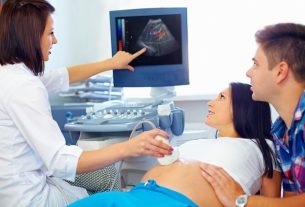Excessive coffee consumption during pregnancy can harm the baby’s weight and growth or even cause miscarriage. This is because the fetus does not have the enzyme responsible for digesting caffeine, leaving it in contact with this substance for a longer time.
However, coffee is a drink that contains good amounts of caffeine, a substance with antioxidant, anti-inflammatory and stimulant properties, helping to prevent diseases such as diabetes and heart attack, as well as improving memory and physical performance.
According to the American School of Obstetrics and Gynecology, safe caffeine consumption during pregnancy is up to 200 mg per day, which corresponds to 1 cup of 340 ml of brewed coffee, for example. Still, it is important to consult your obstetrician before consuming this drink.

Is coffee bad during pregnancy?
Consuming small amounts of coffee is not harmful during pregnancy and, therefore, drinking up to 340 ml of brewed coffee per day, which is equivalent to 200 mg of caffeine, is considered safe by the American School of Obstetrics and Gynecology.
However, consuming more than 200 mg of caffeine per day during pregnancy can reduce the flow of blood, oxygen and nutrients through the placenta, hindering the baby’s development during pregnancy or even causing miscarriage.
Furthermore, during pregnancy, a woman’s body takes longer to digest caffeine and, therefore, coffee consumption can cause some changes, such as poor digestion, insomnia, dizziness or nausea.
Maximum recommended quantity
The maximum recommended amount of coffee during pregnancy is up to 1 340ml cup of brewed coffee or 1 95ml cup of espresso per day, for example, which contain a maximum of 200 mg of caffeine.
Amount of caffeine in food
The following table contains some foods and drinks that also contain caffeine:
Caffeine can also be found in some soft drinks, energy drinks and processed teas. Know the amount of caffeine present in other foods.
Furthermore, some medicines such as Benegrip, Apracur, Doril, Dorflex, Coristina D, Neosaldina, Resfriol and Torsilax may also contain caffeine.
Can pregnant women drink decaffeinated coffee?
Decaffeinated coffee contains small amounts of caffeine. Therefore, pregnant women can consume this type of drink without harming the pregnancy or the baby’s health.
Can breastfeeding people drink coffee?
While breastfeeding, a woman can consume up to 1 cup (340 ml) of brewed coffee, which corresponds to up to 200 mg of caffeine per day. This is because a mother’s high consumption of coffee can cause irritability and insomnia in the baby.
Bibliography
- THE AMERICAN COLLEGE OF OBSTETRICIANS AND GYNECOLOGISTS. Moderate caffeine consumption during pregnancy. 2010-2020. Disponível em: <https://www.acog.org/-/media/project/acog/acogorg/clinical/files/committee-opinion/articles/2010/08/moderate-caffeine-consumption-during-pregnancy.pdf>. Acesso em 29 set 2022
- AMERICAN PREGNANCY ASSOCIATION. Caffeine during pregnancy. Disponível em: <https://americanpregnancy.org/healthy-pregnancy/pregnancy-health-wellness/caffeine-intake-during-pregnancy/>. Acesso em 29 set 2022
- MAYO CLINIC. Nutrition and healthy eating: Find out just how much of this stimulant is in coffee, tea, soda and energy drinks.. Disponível em: <https://www.mayoclinic.org/healthy-lifestyle/nutrition-and-healthy-eating/in-depth/caffeine/art-20049372?p=1>. Acesso em 29 set 2022
- MINISTRY OF HEALTH. Breastfeeding and use of medications and other substances. 2016. Available at: <https://bvsms.saude.gov.br/bvs/publicacoes/amamentacao_uso_medicamentos_outras_substancias.pdf>. Accessed on September 29, 2022
- THE \AMERICAN COLLEGE OF OBSTETRITIANS AND GYNECOLOGISTS. Breastfeeding Your Baby. Disponível em: <https://www.acog.org/womens-health/faqs/breastfeeding-your-baby>. Acesso em 29 set 2022

Sign up for our newsletter and stay up to date with exclusive news
that can transform your routine!
Warning: Undefined array key "title" in /home/storelat/public_html/wp-content/plugins/link-whisper-premium/templates/frontend/related-posts.php on line 12
Warning: Undefined array key "title_tag" in /home/storelat/public_html/wp-content/plugins/link-whisper-premium/templates/frontend/related-posts.php on line 13




